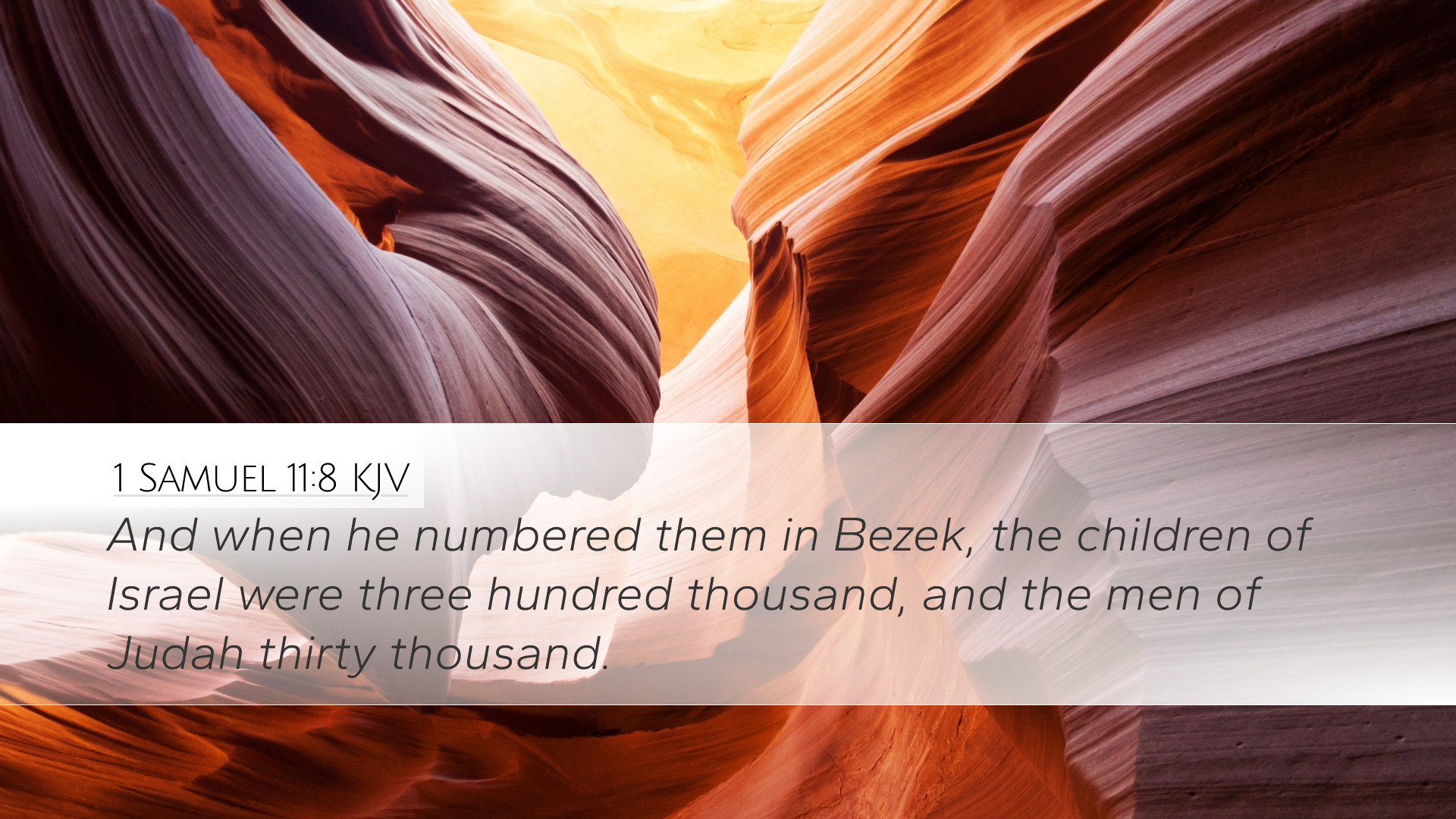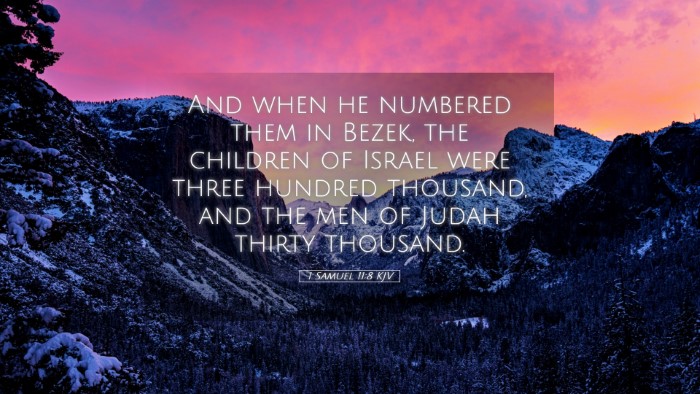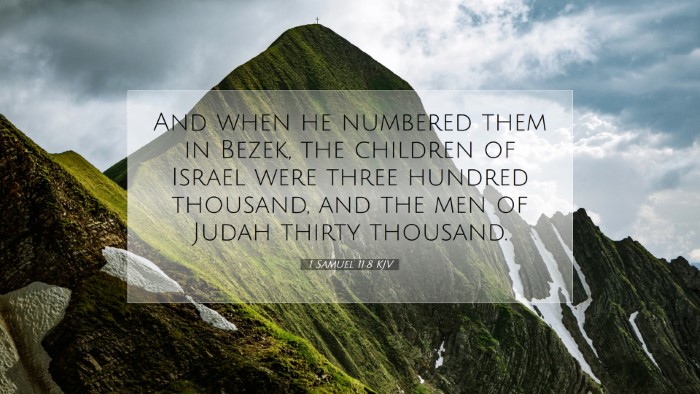Commentary on 1 Samuel 11:8
1 Samuel 11:8 (NIV): "When Saul mustered them at Bezek, the men of Israel numbered three hundred thousand and the men of Judah thirty thousand."
Contextual Overview
1 Samuel 11:8 falls within the narrative of Saul’s leadership and the early days of Israel’s monarchy. Following his anointing as king, Saul is tested by a crisis that demands decisive action. This verse highlights the mobilization of Israelite forces in response to the Ammonite threat, demonstrating Saul's emerging authority.
Insights from Matthew Henry
Matthew Henry emphasizes the significance of Saul's leadership in rallying the troops. He notes that the gathering of such a large force indicates unity among the tribes of Israel.
- Unity of Israel: Henry points out that the collective response of the Israelites is reflective of their desire for protection and leadership during times of peril.
- Divine Providence: He observes that God’s hand was present in uniting these tribes as they faced a common enemy, suggesting that the crisis was providential to solidify Saul’s reign.
- Lord’s Sovereignty: There is an acknowledgment of God’s sovereignty in appointing Saul, indicating that Saul's success is not merely through his own leadership but by divine appointment.
Insights from Albert Barnes
Albert Barnes provides a thorough examination of the demographic significance of the figures presented in this verse. He underscores several important points:
- Numerical Strength: The verse indicates a substantial military force, with the men of Israel totaling 300,000 and men of Judah at 30,000. Barnes highlights that this was a considerable mobilization for the era, showing a significant commitment to defend against the Ammonites.
- Regional Distinction: The distinction between Israel and Judah reflects the socio-political divisions existing at that time and suggests regional loyalties.
- Response to Leadership: Barnes notes that the response of the people to Saul's call signifies a growing recognition of his authority, an essential aspect of his role as king.
Insights from Adam Clarke
Adam Clarke adds depth to the understanding of this passage by focusing on the geographical and strategic implications of the mobilization:
- Bezek as a Gathering Point: Clarke remarks that Bezek was strategically located and served as an effective rallying point for the troops. The choice of location is deliberate, facilitating easier access for the different tribes.
- Psychological Aspect: He discusses the psychological impact of such large numbers, both on the soldiers and their enemies. The morale boost provided by a large army can significantly affect the outcome of a conflict.
- Leadership Challenges: Clarke warns that while the gathering of troops signifies Saul's rising influence, it also presents challenges in terms of leadership, strategy, and motivation—a precursor to future trials in his reign.
Theological Implications
This passage invites reflection on several theological themes:
- Divine Sovereignty: The story underscores God’s sovereignty in the affairs of human governance, as Saul is raised up to lead in response to a national crisis.
- Community and Leadership: The gathering of 330,000 men around Saul presents a model of community response to leadership, relevant to pastoral and church dynamics today.
- Faith in Action: The mobilization signifies not just a military response, but an act of faith among the people as they trust in God’s provision through their new king.
Applications for Today
For pastors, students, theologians, and scholars, the lessons from this passage remain pertinent:
- Leadership in Crisis: Reflecting on Saul's early leadership can provide insights into effective leadership principles during crises in contemporary settings.
- Unity Among Believers: The gathering of the tribes exemplifies the importance of unity in facing common challenges, encouraging church communities to rally together in faith.
- God’s Guidance: The acknowledgment of God’s role in raising leaders can inspire believers to seek divine guidance in their decisions and governance structures.
Conclusion
In conclusion, 1 Samuel 11:8 serves as a pivotal moment in Israel's history, marking Saul's transition from a private individual to a public leader. The commentaries from Henry, Barnes, and Clarke illuminate various layers of meaning surrounding this passage, offering rich theological insights and applications for today's readers.


